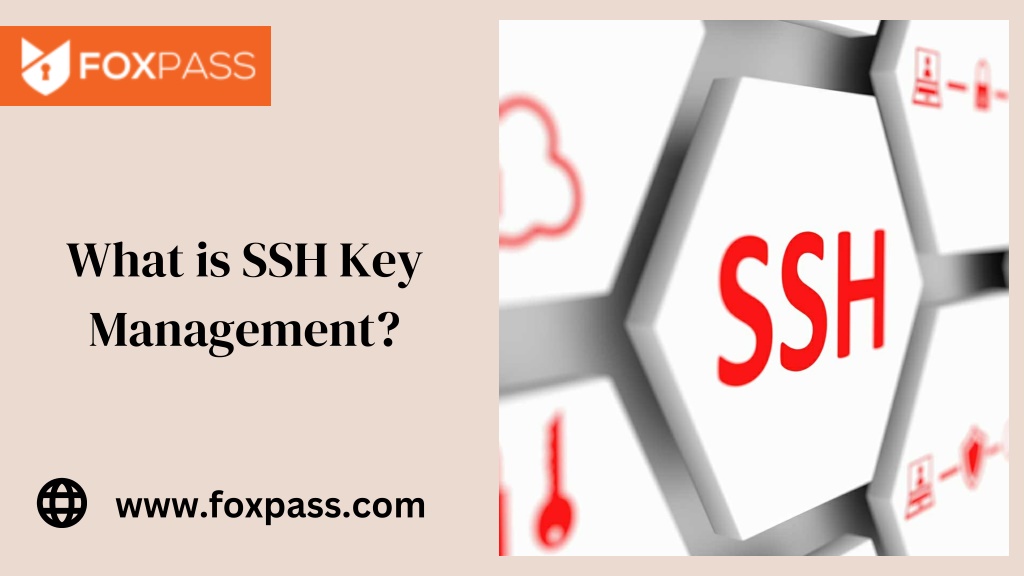Managing SSH keys for remote IoT devices can be a daunting task, especially when you're dealing with hundreds or even thousands of connected devices. But don't worry, we've got your back. In this guide, we'll dive deep into the best practices for remoteIoT SSH key management, helping you secure your network while keeping things simple and efficient. Whether you're a seasoned IT pro or just starting out, this article will provide you with actionable insights and practical tips to enhance your security infrastructure.
Imagine a world where every device in your network is connected, communicating seamlessly without compromising security. That's the promise of IoT—but it comes with its own set of challenges. One of the biggest hurdles is managing SSH keys effectively. These cryptographic keys are the backbone of secure communication between devices, and mishandling them can leave your entire system vulnerable to cyber threats.
In this article, we'll explore the ins and outs of remoteIoT SSH key management, covering everything from generating strong keys to implementing robust policies. By the end, you'll have a solid understanding of how to protect your IoT ecosystem without losing sleep over security breaches. So grab a cup of coffee, sit back, and let's get started!
Read also:David Boon Son Unveiling The Legacy And Journey Of A Cricket Icon
Table of Contents
- Why SSH Key Management Matters for RemoteIoT
- Best Practices for RemoteIoT SSH Key Management
- Top Tools for Managing SSH Keys
- Enhancing Security with SSH Keys
- Automating SSH Key Management
- Common Challenges in SSH Key Management
- Biography of Key Players in SSH Technology
- Scaling SSH Key Management for Large Networks
- Compliance and Regulatory Considerations
- The Future of SSH Key Management in IoT
Why SSH Key Management Matters for RemoteIoT
SSH key management is not just a technical detail—it's a critical component of securing your remoteIoT infrastructure. Think about it: every time a device connects to your network, it needs a secure way to authenticate itself. Without proper SSH key management, unauthorized devices could infiltrate your system, leading to data breaches and costly downtime.
Here’s why SSH key management matters so much in the context of remoteIoT:
- Authentication: SSH keys ensure that only trusted devices can access your network.
- Encryption: They encrypt data transmitted between devices, making it difficult for hackers to intercept sensitive information.
- Scalability: As your IoT network grows, managing SSH keys becomes even more important to maintain security and efficiency.
By implementing strong SSH key management practices, you can safeguard your network against unauthorized access and ensure seamless communication between devices.
Best Practices for RemoteIoT SSH Key Management
Generating Strong SSH Keys
The first step in effective SSH key management is generating strong keys. A weak key can be easily cracked, leaving your network vulnerable. Here are some tips for creating robust SSH keys:
- Use algorithms like RSA (2048 bits or higher) or ECC for better security.
- Add a passphrase to protect your private key, making it harder for attackers to gain access.
- Regularly update your keys to stay ahead of potential threats.
Remember, the strength of your SSH keys directly impacts the security of your remoteIoT network. Don't cut corners here!
Storing SSH Keys Securely
Once you've generated your SSH keys, it's crucial to store them securely. Here are some best practices for key storage:
Read also:Is Lilithberry Ai Unpacking The Truth Behind This Tech Sensation
- Use hardware security modules (HSMs) or secure enclaves to protect your private keys.
- Avoid storing private keys on unencrypted devices or in plain text files.
- Implement role-based access controls to restrict who can access the keys.
Proper storage ensures that even if an attacker gains access to your system, they won't be able to retrieve your private keys easily.
Top Tools for Managing SSH Keys
Managing SSH keys manually can be a nightmare, especially for large-scale remoteIoT deployments. Luckily, there are several tools available to simplify the process:
- SSH Key Manager: A popular open-source tool for managing SSH keys across multiple devices.
- HashiCorp Vault: A powerful solution for securely storing and managing secrets, including SSH keys.
- Keycloak: An identity and access management platform that supports SSH key management.
These tools not only streamline key management but also enhance security by automating tasks like key rotation and revocation.
Enhancing Security with SSH Keys
SSH keys are more than just a means of authentication—they play a vital role in securing your remoteIoT network. By implementing the following strategies, you can significantly boost your network's security:
- Key Rotation: Regularly rotate your SSH keys to minimize the risk of compromise.
- Access Control: Enforce strict access controls to ensure that only authorized devices can connect to your network.
- Monitoring: Continuously monitor your network for suspicious activity and respond promptly to potential threats.
With these measures in place, you can rest assured that your remoteIoT network is protected against unauthorized access.
Automating SSH Key Management
Automation is key to managing SSH keys efficiently, especially in large-scale remoteIoT deployments. Here's how you can automate various aspects of SSH key management:
- Key Generation: Use scripts or tools to automate the creation of new SSH keys.
- Key Distribution: Automate the distribution of keys to devices across your network.
- Key Revocation: Set up automated processes to revoke keys when devices are decommissioned or compromised.
By automating these tasks, you can save time and reduce the risk of human error, ensuring that your SSH key management processes run smoothly.
Common Challenges in SSH Key Management
Despite its importance, SSH key management comes with its own set of challenges. Here are some common issues you might encounter:
- Key Sprawl: As your network grows, managing an increasing number of keys can become overwhelming.
- Expired Keys: Failing to rotate keys regularly can leave your network vulnerable to attacks.
- Unauthorized Access: Poor key management practices can lead to unauthorized devices gaining access to your network.
Addressing these challenges requires a combination of robust policies, automated processes, and regular audits to ensure that your SSH key management system remains effective.
Biography of Key Players in SSH Technology
SSH technology wouldn't be where it is today without the contributions of several key players. Let's take a look at some of the pioneers in this field:
| Name | Role | Contribution |
|---|---|---|
| Tatu Ylönen | Founder of SSH Communications Security | Created the original SSH protocol in 1995. |
| OpenSSH Team | Open Source Developers | Maintain the widely used OpenSSH software. |
| SSH Communications Security | Company | Develops commercial SSH solutions for enterprise use. |
These individuals and organizations have played a pivotal role in shaping the future of SSH technology, making it a cornerstone of secure communication in the IoT era.
Scaling SSH Key Management for Large Networks
As your remoteIoT network expands, scaling your SSH key management system becomes increasingly important. Here are some strategies to help you scale effectively:
- Centralized Management: Use a centralized platform to manage keys across all devices in your network.
- Scalable Tools: Invest in tools that can handle large-scale deployments without compromising performance.
- Automated Processes: Automate key generation, distribution, and revocation to reduce manual effort.
By implementing these strategies, you can ensure that your SSH key management system remains efficient and secure as your network grows.
Compliance and Regulatory Considerations
SSH key management isn't just about security—it also involves compliance with various regulations. Here are some key considerations:
- GDPR: Ensure that your key management practices comply with data protection regulations.
- HIPAA: If you're working in the healthcare industry, make sure your SSH keys meet HIPAA requirements.
- PCI-DSS: For financial institutions, adhere to PCI-DSS standards for secure key management.
Staying compliant not only protects your organization from legal issues but also enhances trust with your customers.
The Future of SSH Key Management in IoT
As IoT continues to evolve, so too will the methods for managing SSH keys. Here's what we can expect in the future:
- AI-Driven Automation: Artificial intelligence will play a bigger role in automating key management processes.
- Quantum-Resistant Algorithms: New algorithms will be developed to withstand attacks from quantum computers.
- Blockchain Integration: Blockchain technology may be used to enhance the security and transparency of key management.
By staying ahead of these trends, you can ensure that your remoteIoT SSH key management system remains cutting-edge and secure.
Kesimpulan
In conclusion, mastering remoteIoT SSH key management is essential for securing your IoT network. By following best practices, leveraging the right tools, and staying compliant with regulations, you can protect your system from unauthorized access and potential breaches. Remember, security is an ongoing process, and regularly updating your SSH keys and policies is key to maintaining a robust defense.
We encourage you to take action by implementing the strategies outlined in this guide. Whether it's automating key management or adopting new technologies, every step you take brings you closer to a secure IoT ecosystem. Don't forget to share your thoughts in the comments below and explore other articles on our site for more insights into IoT security.



